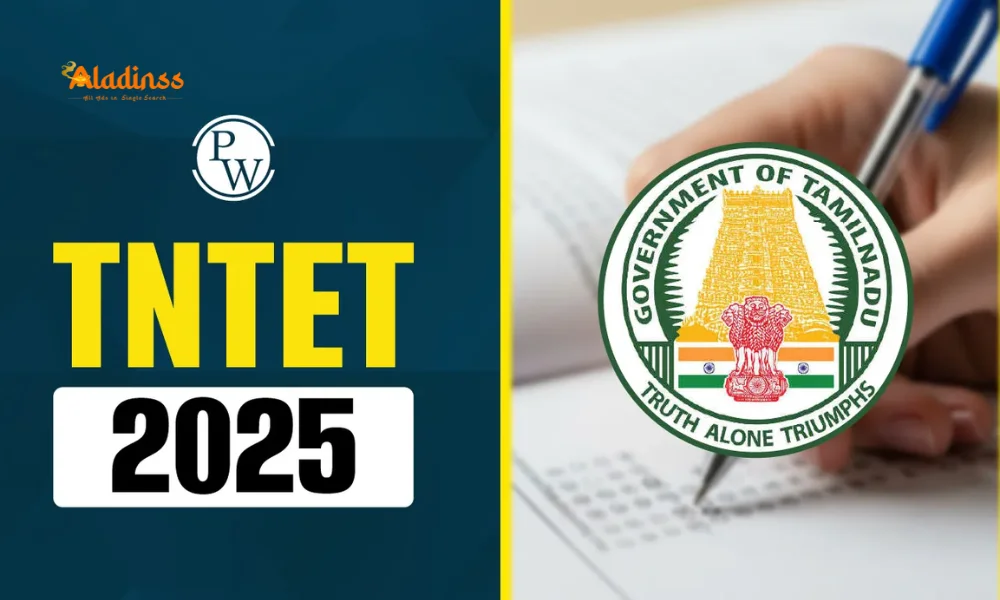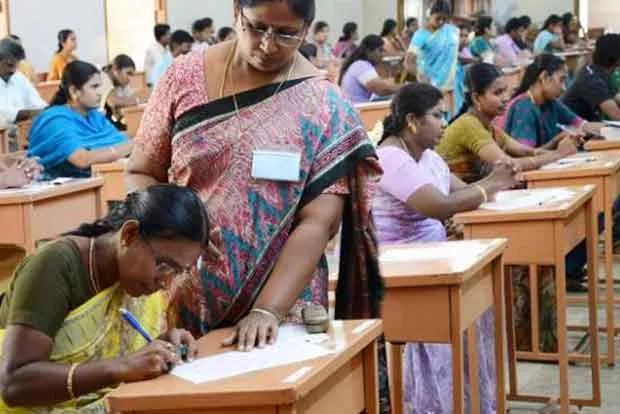Tamil Nadu to Challenge TET Exam Mandate for Teachers

Tamil Nadu to Challenge TET Exam Mandate for Teachers
In a significant development, the Tamil Nadu Department of School Education has announced its intention to file a review petition against a Supreme Court ruling mandating the Teacher Eligibility Test (TET) for teachers appointed before August 2010. This breaking news follows a statement from School Education Minister Anbil Mahesh, highlighting concerns over the potential disruption to the education sector if the TET exam is enforced retroactively. The decision has sparked widespread discussion, given its implications for thousands of teachers and the future of education in Tamil Nadu.

Concerns Over TET Mandate
The Department of School Education has expressed apprehension about the Supreme Court’s directive, stating that making the TET exam mandatory for teachers who joined the service before August 2010 could destabilize the education system. According to the department, these teachers were appointed under the legal framework and regulations in place at the time. Imposing new qualifications retroactively and enforcing compulsory retirement for non-compliance is deemed unfair and impractical.
The department’s statement emphasizes that such a policy could lead to the forced retirement of a significant number of teachers, resulting in a severe shortage of educators across Tamil Nadu’s schools. Replacing these teachers with TET-qualified professionals in a short timeframe poses logistical challenges, including recruitment and training. The potential teacher shortage could adversely affect the education of lakhs of students, disrupting the academic ecosystem in the state.
Legal Context of the TET Exam
The Teacher Eligibility Test (TET) was introduced by the National Council for Teacher Education (NCTE) on August 23, 2010, as a mandatory qualification for new teacher appointments under the Right to Free and Compulsory Education Act (RTE), 2009. The RTE Act outlines minimum qualifications for teachers to ensure quality education but explicitly applies these standards to new hires. The NCTE’s notification at the time clarified that the TET requirement would not apply to teachers appointed before August 2010, protecting their job security.
The Tamil Nadu government argues that retroactively applying the TET requirement contradicts the original intent of the NCTE guidelines and the RTE Act. The department contends that the Supreme Court’s ruling overlooks this distinction, potentially jeopardizing the livelihoods of experienced educators who have served for decades under the earlier regulatory framework.
Impact on Tamil Nadu’s Education Sector
Tamil Nadu’s education system is one of the most robust in India, with a vast network of government and aided schools serving millions of students. The potential loss of experienced teachers due to mandatory TET compliance could create significant gaps in the system. Rural schools, in particular, may face challenges, as they already struggle with teacher shortages in certain subjects. The department’s statement underscores the impracticality of recruiting and training a large number of TET-qualified teachers in a short period, especially given the specialized skills required for subjects like mathematics and science.
Furthermore, the emotional and professional toll on teachers who face compulsory retirement cannot be overlooked. Many of these educators have dedicated decades to shaping young minds, and retroactively imposing new qualifications could undermine their contributions. The department’s decision to challenge the Supreme Court’s ruling reflects its commitment to protecting these teachers while ensuring the stability of the education system.
Government’s Response and Review Petition
Following School Education Minister Anbil Mahesh’s announcement, the Tamil Nadu government has taken a proactive stance by planning to file a review petition in the Supreme Court. The petition aims to seek clarity and reconsideration of the court’s decision, emphasizing the potential adverse effects on the education sector. The department has assured stakeholders that it will approach the issue with utmost seriousness, striving to secure a fair and balanced resolution.
The government’s move has been welcomed by teacher unions and associations, who have long advocated for the protection of pre-2010 appointees. These groups argue that the TET requirement, while essential for ensuring quality in new hires, should not penalize teachers who were appointed under different norms. The review petition is expected to highlight these concerns, presenting a case for upholding the original NCTE guidelines.
Public and Stakeholder Reactions
The announcement has sparked a range of reactions from educators, parents, and policymakers. Teacher unions have praised the government’s decision to challenge the Supreme Court’s ruling, viewing it as a step toward safeguarding the livelihoods of thousands of educators. Parents, however, have expressed mixed sentiments, with some concerned about the potential impact on educational quality if the TET requirement is relaxed, while others support the government’s stance to protect experienced teachers.
Media coverage of the issue has been extensive, with news outlets closely following the developments. Social media platforms have seen heated debates, with hashtags related to the TET exam trending in Tamil Nadu. The public’s keen interest underscores the significance of the issue, as education remains a critical priority for the state’s development.
Broader Implications for Education Policy
The controversy surrounding the TET mandate highlights broader challenges in education policy, particularly the balance between maintaining quality standards and respecting the contributions of existing educators. The RTE Act and NCTE guidelines aim to elevate teaching standards, but their implementation must consider the practical realities of India’s diverse education system. Tamil Nadu’s case could set a precedent for other states grappling with similar issues, making the outcome of the review petition a matter of national interest.
The debate also raises questions about teacher training and professional development. Instead of retroactively imposing qualifications, experts suggest that governments could invest in upskilling programs to help pre-2010 teachers meet modern standards without risking their jobs. Such initiatives could bridge the gap between legacy and contemporary requirements, ensuring both quality education and job security.
As Tamil Nadu awaits the Supreme Court’s response to the review petition, the education community remains on edge. The resolution of this issue will likely shape the state’s approach to teacher qualifications and education policy for years to come. For now, the focus is on the government’s efforts to protect its teachers while maintaining the integrity of the education system.
Comment / Reply From
No comments yet. Be the first to comment!











